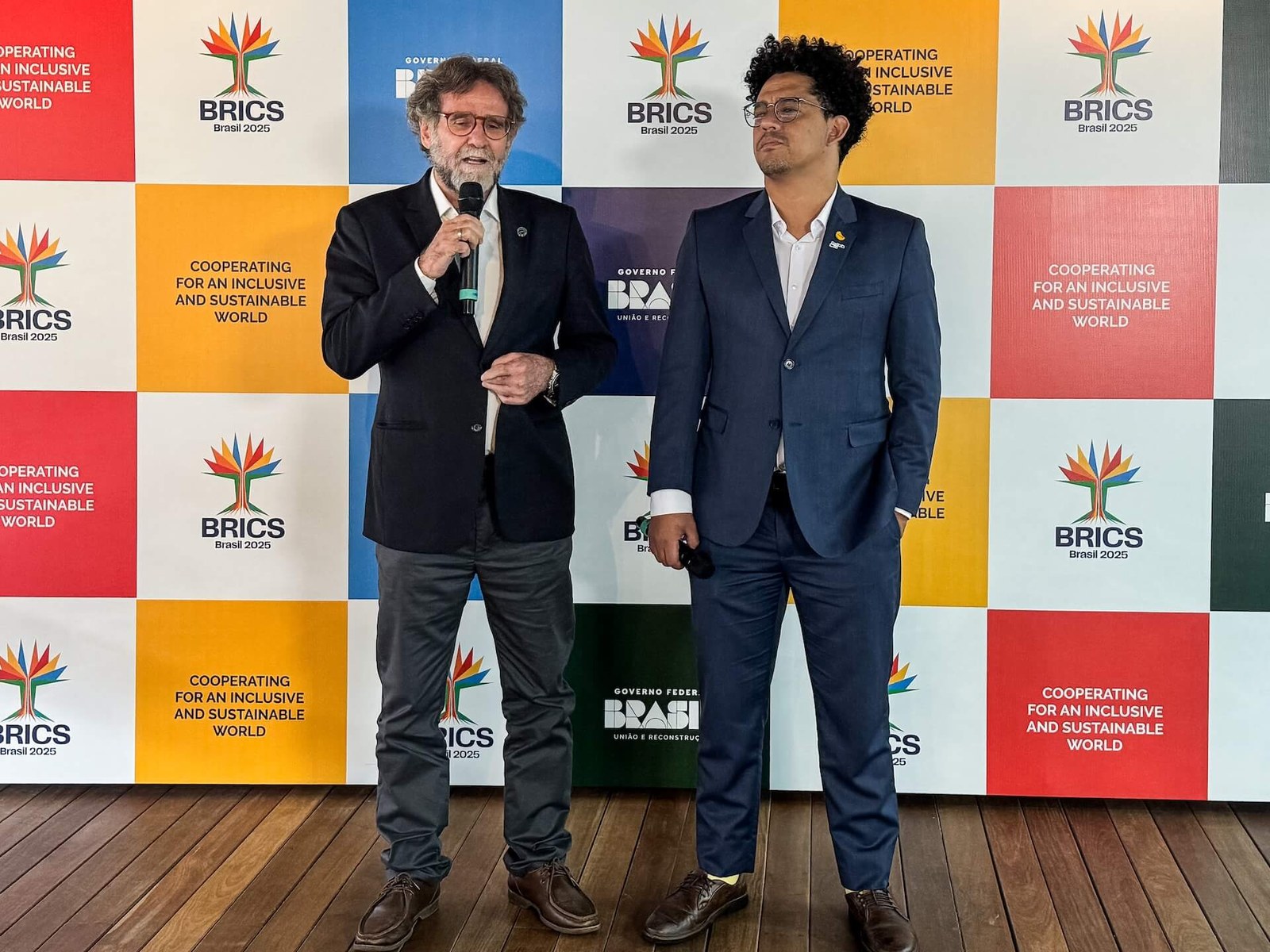BRICS prioritizes combating inequalities to reduce vulnerabilities
Under the Brazilian Presidency, the group advances on inclusive strategies in disaster management, focusing on prevention and early warning systems. Climate financing and global partnerships are the central challenges.

By Inez Mustafa | inez.mustafa@presidencia.gov.br
Under the Brazilian Presidency, the first meeting of the Disaster Management Working Group highlighted combating inequalities as the central axis to reduce vulnerabilities. Participants at the meeting also emphasized the importance of participation to prevent risks and build inclusive strategies. Guilherme Simões, the Ministry of Cities’ national secretary for peripheries, highlighted that one of the group’s main challenges is to connect social inequalities to climate vulnerabilities, seeking partnerships and financing mechanisms to make these priorities effective.
The group aims to promote inclusive community strategies to prevent, reduce, prepare for, and respond to disasters, focusing on vulnerable populations such as women, youth, Indigenous peoples, and persons with disabilities. According to the Secretary, the Brazilian Government has been working to integrate this cross-cutting nature between inequality combat and disaster management, which has been addressed at the G20 and highlighted at the BRICS.
“In the context of the G20, President Lula brought the initiative to create the Global Alliance against Hunger and Poverty, which connects to this agenda. We have now realized at the BRICS, too, at this first meeting, that this understanding should be adopted by all countries” Simões added.
Coordinated by the Brazilian ministries of Integration and Regional Development (Integração e Desenvolvimento Regional /MDIR) and of Cities, the group operates under the principles of sustainable development, social inclusion, and international cooperation, aligning to global commitments such as those established in the Kazan Declaration, when the group was formed, and the G20 Disaster Risk Reduction Working Group.
Foreign and domestic policies aligned
Aligned to the Brazilian Government’s policy, one of the group’s priorities is the development of Inclusive Early Warning Alert Systems (CBEWS) integrating traditional knowledge and modern technologies for effective communication. Wolnei Wolff, national secretary of civil protection and defense at MDIR, highlighted the Brazilian experience with program Defesa Civil Alerta, a system that sends text messages to cell phones in areas at risk of natural disasters.
Guilherme Simões stated that, for a long time, risk management has been related to response to disasters; however, he said, it is also key to address the issue of prevention. He underscored that, “discussions on risk management have been stuck on the debate around response. BRICS countries address the issue of prevention as a lifesaving discussion and effective use of public resources”.
The role of the BRICS Bank
Prevention has been gaining momentum at the BRICS group, which has been addressing it with enthusiasm, highlighted Simões. One of the group’s specificities is the existence of the New Development Bank (NBD), which can play a crucial role in financing risk management projects.
“We have an important opportunity, which is the fact that the BRICS has its own bank; therefore, it is fundamental that we include this bank in the debate, stimulating the use of resources from national State investments in the risk management policies, particularly for prevention,” stressed Simões.
Secretary Wolff added that the issue of climate financing is a tabu in the international economic community. He emphasized that President Lula has raised this flag at international forums, criticizing the developed countries for their lack of sensitivity for financing issues related to disaster management. However, said the secretary, it is possible to work with other multilateral banks and other countries that are willing to cooperate on this issue.